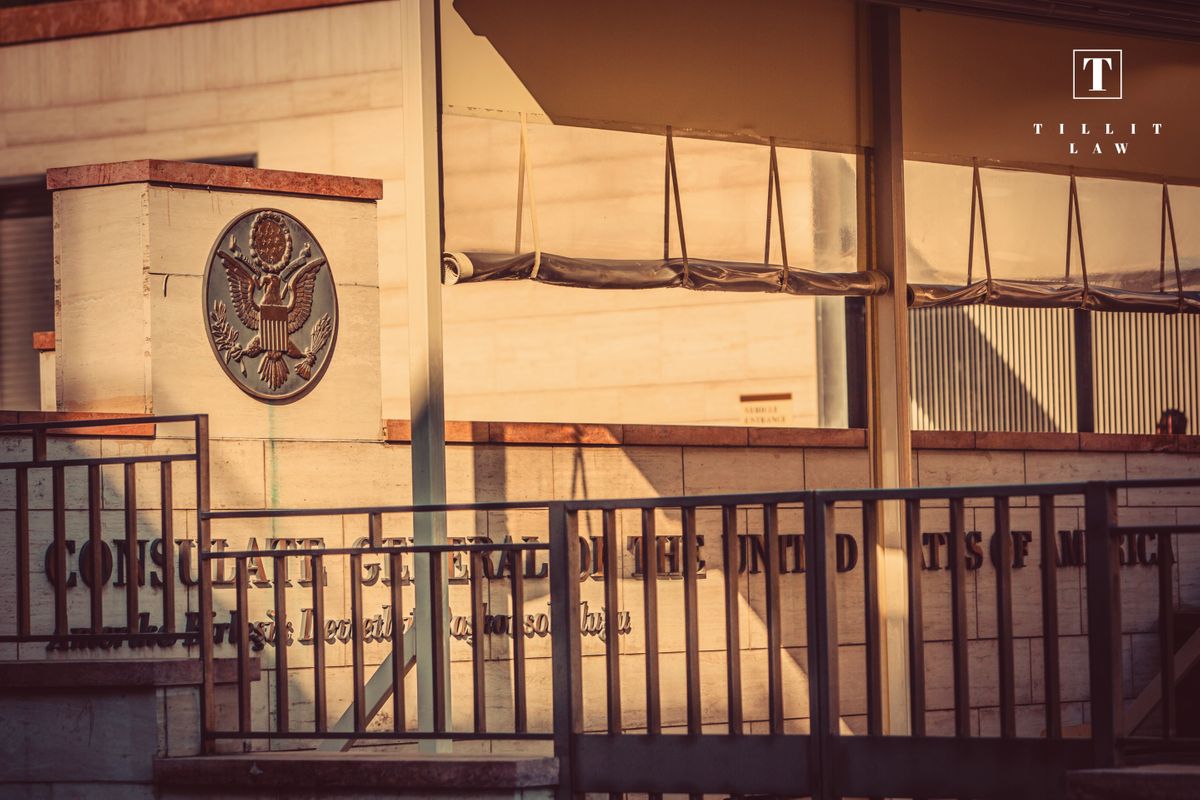Government contractors often rely on joint venture (JV) arrangements to meet the requirements of a solicitation. One such arrangement is the "de facto joint venture," where no formal agreement is reached, but the offering entity relies upon the experience of a related U.S. firm that guarantees the offering entity's performance. De facto joint ventures are commonly used in the context of procurements conducted under the Omnibus Diplomatic Security and Antiterrorism Act (Security Act) of 1986, which sets forth the requirements for companies seeking to compete for the construction of U.S. diplomatic facilities. Notably, where adequate competition exists for contracts involving diplomatic construction or design, the Security Act requires that only U.S. persons and “qualified joint venture persons” may submit a bid. Additionally, in its Security Act implementing regulations, the DOS permits offerors to rely on de facto JVs to meet the requirements of the Security Act. Therefore, depending on the terms of the solicitation, the de facto JV may provide potential contractors an additional avenue to demonstrate responsibility or meet past performance requirements by leveraging the resources and experience of related U.S. entities. However, since the de facto JV is not a separately registered entity, issues may arise when the de facto JV must meet specific qualification requirements, such as having an active registration in the System of Award Management (SAM).
In B-422122.2, the Government Accountability Office (GAO) sustained a post-award bid protest challenging the procuring agency's determination that a de facto joint venture was ineligible to receive an award because it did not have an active SAM registration at the time of proposal submission. The GAO bid protest decision issued on March 22, 2024, involved a fixed-priced Department of State (DOS) contract to construct a new U.S. consulate compound in Adana, Turkey. The procurement at issue was conducted in three phases, with Phases 1 and 2 requiring contractors to submit proposals for prequalification and qualified offerors to submit a final proposal in Phase 3 of the procurement. To meet the prequalification requirements in the first two procurement phases, the protestor relied on a de facto JV comprising two wholly owned subsidiary companies and their parent company. The parent company and its wholly owned subsidiaries were both jointly and severally liable for performance on the contract. Meanwhile, one of the two subsidiaries, a domestically disregarded limited liability company (LLC), was the "offering entity" that submitted the proposals for all three phases. In Phase 2 of the procurement, the de facto JV also teamed with another unaffiliated entity. During Phase 3 of the procurement, the RFP notified qualified offerors that Phase 3 proposals had to be submitted by the same offering entity that prequalified in Phase 2. After Phase 3 and the subsequent evaluation, the Adana consulate compound construction contract was awarded on September 30, 2023.
Following the award, a disappointed offeror filed a GAO protest alleging that the awardee could not have prequalified in the first two phases of the procurement because it did not meet the definition of a U.S. person as required by the Security Act. That protest, however, was dismissed as academic after the DOS notified the GAO that it would take corrective action, including confirming the awardee's eligibility to compete in Phase 3 of the procurement. The DOS also promised to confirm that prequalified offerors were properly registered in SAM. On December 8, 2023, the DOS informed the awardee that the domestically disregarded LLC it had proposed as the "offering entity" was not the same offeror that had prequalified under Phase 1 and evaluated under Phase 2. Therefore, that "offering entity" was not eligible to submit a proposal in Phase 3. Additionally, the DOS notified the awardee that since its de facto JV was not registered in SAM at the time of the Phase 3 proposal submission, it was ineligible for an award. Subsequently, the awardee brought the present protest at the GAO, challenging the DOS' post-award determination that the awardee’s "offering entity" was not eligible to participate in Phase 3. The protestor argued that the wholly owned subsidiary LLC as a stand-alone entity was the proper "offering entity" prequalified to compete in Phase 3 and that the "offering entity" was (and continued to be) registered in SAM at the time of the Phase 3 proposal submissions. Furthermore, the protestor alleged that it was impossible for a "de facto JV" to register itself in SAM, due to a lack of a formal written agreement between the de facto JV’s member firms.
The GAO began its analysis by noting that in reviewing an agency's prequalification decision under the Security Act, the GAO examines the supporting record to determine whether the decision was rational, consistent with the stated evaluation criteria, consistent with the applicable laws and regulations, and adequately documented. The GAO noted that during its pre-solicitation phase, the procurement expressly contemplated receiving offers from de facto JVs. In agreeing with the protestor, the GAO also pointed out that in de facto JVs, there is no formal agreement between the co-venturers and the "offering entity" relies upon the experience of a related U.S. person firm (as described in the Security Act), that guarantees performance. Here, the protestor's disregarded LLC was the "offering entity" that relied upon the resources and the construction experience of its parent company and a sister construction company. Additionally, both the parent company and its wholly owned subsidiaries guaranteed performance on the contract and represented themselves as being jointly and severally liable. Furthermore, the DOS notified the protestor after Phases 1 and 2 that its team, comprising of the de facto JV in Phase 1, and the de facto JV plus the non-affiliated company in Phase 2, had prequalified under the Security Act and could advance to the next procurement phase. The GAO also noted that the protestor's domestically disregarded LLC was always the "offering entity" in all its submissions to the DOS. Therefore, the GAO determined that the protestor qualified for Phase 3 of the procurement under the terms of the RFP, as well as the requirements of the Security Act as implemented by DOS’ own regulations.
The GAO also pointed out that by its very nature, a de facto JV could not be a separate legal entity. Therefore, the DOS could not have entered into a contract with the de facto JV but rather had to award the contract to one of its member entities, that is, the "offering entity" – which was the protestor's domestically disregarded LLC. The GAO held that in Security Act procurements when a company chooses to utilize a de facto JV to qualify as a U.S. person, it can prequalify as a de facto JV and submit any subsequent responses from a stand-alone entity, i.e., the "offering entity," and still be considered the same entity that prequalified. Here, since the protestor's de facto JV had prequalified during earlier phases of the procurement, and the "offering entity" was a member firm of the de facto JV, the "offering entity" had prequalified to submit a Phase 3 proposal under the Security Act. Therefore, the GAO determined that it was unreasonable for the DOS to disqualify the awardee on the basis that different entities had submitted its Phase 2 and Phase 3 proposals.
On the issue of SAM registration, the protestor argued that it was impossible a de facto JV to be registered in SAM. Consequently, the GAO instructed the DOS to file a supplemental agency report on the matter. In the supplemental agency report, the DOS offered that the de facto JV could register as a partnership or a limited liability partnership or alternatively elect to form an actual JV and register that entity in SAM. The GAO found this solution unreasonable considering the RFP’s requirement that an offeror’s prequalifying entity in Phases 1 and 2 of the procurement be the same entity that submits the Phase 3 response. Since the protestor had already prequalified in Phases 1 and 2 of the procurement with a de facto JV, the subsequent formation of a new entity, whether a partnership or a formal JV, would necessarily mean that a different entity submitted the Phase 3 proposal than the one that prequalified in the earlier stages of the procurement. Therefore, the GAO found that the agency had failed to adequately explain how the protestor’s de facto JV could be registered in SAM. In sustaining the protest, the GAO ruled that since it was impossible for a de facto JV to be registered in SAM, requiring a de facto JV to do so in the present procurement unduly restricted competition, and it was unreasonable for the DOS to exclude the protestor on this basis.
The use of de facto JVs is prevalent in Security Act procurements as contractors are often required to rely upon the resources and experience of related U.S. firms to construct American diplomatic facilities around the world. Since by its very nature, a de facto JV is not reduced to a formal written arrangement, contractors relying on such JV arrangements in multi-phase procurements, should flag any solicitation provisions requiring a de facto JV to be registered in SAM as a patent ambiguity in the solicitation. Additionally, contractors relying on de facto JVs in Security Act procurements should ensure that the "offering entity" is duly registered in SAM to meet the requirements of the clause at 52.204-7. Any other prequalification requirements that are similarly impossible for a de facto JV to meet, should be brought to the government's attention as early as possible as they may be a valid basis for a pre-award protest.
This Federal Procurement Insight is provided as a general summary of the applicable law in the practice area and does not constitute legal advice. Contractors wishing to learn more are encouraged to consult the TILLIT LAW PLLC Client Portal or Contact Us to determine how the law would apply in a specific situation.





